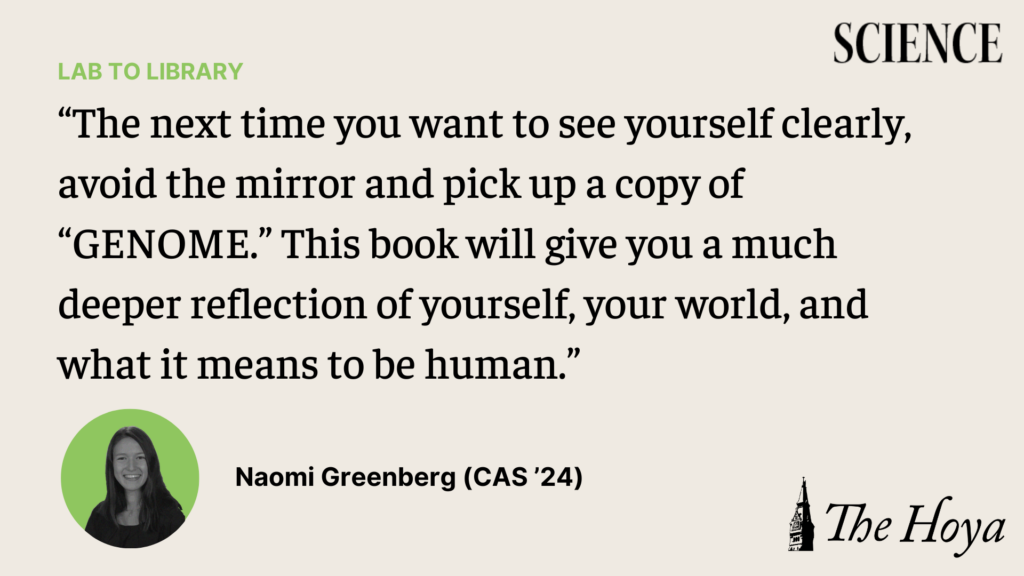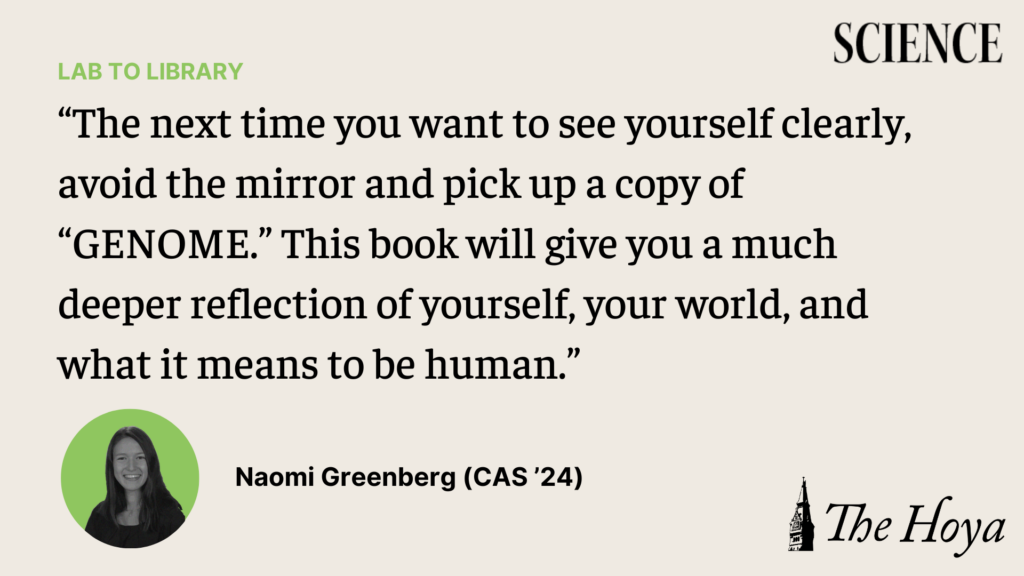A common analogy in biology compares the genome to a book, where chromosomes are chapters and genes are sentences. Unfortunately, that’s where the analogy ends; one cannot actually “read” the human genome.
That is, unless you read “GENOME: The Autobiography of a Species in 23 Chapters” by Matt Ridley. The book, published in 1999 — which is essentially the Stone Age when it comes to the fast-paced field of genetics — is compelling, informative and will give you an endless list of fun facts to impress your friends with.
If you’re looking to dabble in science literature, I would recommend this classic book, which remains a timeless narrative of human genetics, despite its age. But read with caution: This book converted me to a biology major. I can’t promise it won’t do the same to you.
If you remember high school biology or are familiar with the genetic testing company 23andMe, you might know that most humans have 23 pairs of chromosomes, numbered based on their size. Ridley dedicates each of the 23 chapters to a trait that can be traced back to the chromosome pair with that number. Topics range from Huntington’s disease to breast cancer, and from dust allergies to chronic stress. But Ridley reminds his readers that despite the focus on things going wrong, “genes are not there to cause diseases.” Instead, he emphasizes that they are there to make daily life possible.
Understanding the role of genes in my day-to-day life caused a mindset shift for me. I was familiar with the idea that some of my traits — like green eyes, brown hair or attached earlobes — were genetically determined. I was also aware that I might someday discover an inherited health problem.

But the idea that my stress levels, my spontaneity and my linguistic ability might be influenced by sequences of DNA on chromosomes 10, 11 and 16, respectively, was new to me. Suddenly, genetics became a lot more relevant to me; our DNA isn’t just part of us — in a way, it is us.
Luckily, before I had time to start worrying too much about genetic determinism, I reached Chapter 22. In this chapter, Ridley describes how he wrestles with the role of our genes versus our freedom. “Genes can affect behaviour and behaviour can affect genes,” he explains, emphasizing that there is no way to separate our environment from our DNA.
Closing the book, I had more questions than answers. Here was a field with so much knowledge and at the same time so many unknowns. My only solution was to keep reading books about science, human nature and our DNA. Matt Ridley’s “GENOME” was the beginning of my interest in our DNA, and it felt appropriate to be the inaugural “Lab to Library” column.
The next time you want to see yourself clearly, avoid the mirror and pick up a copy of “GENOME.” This book will give you a much deeper reflection of yourself, your world, and what it means to be human.









